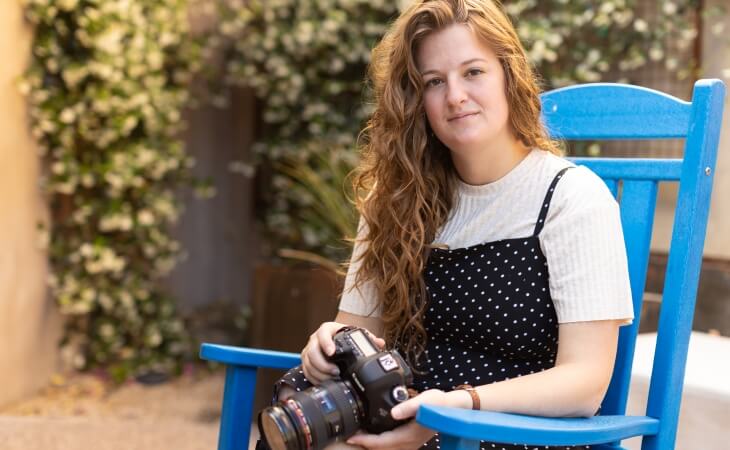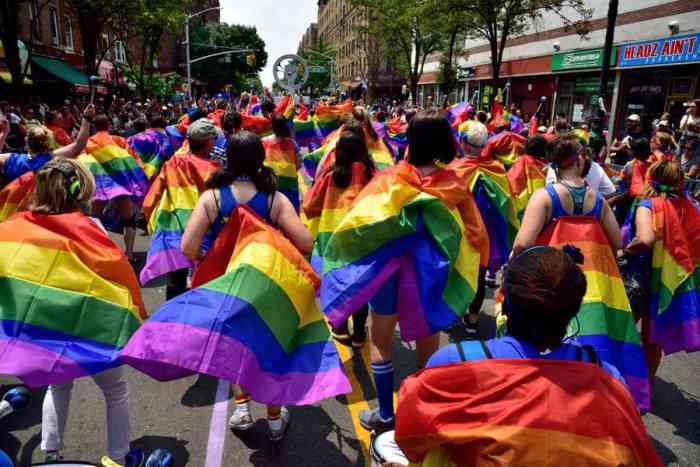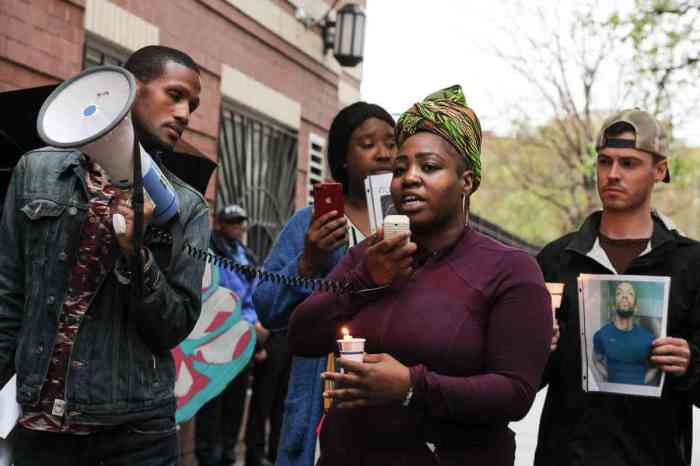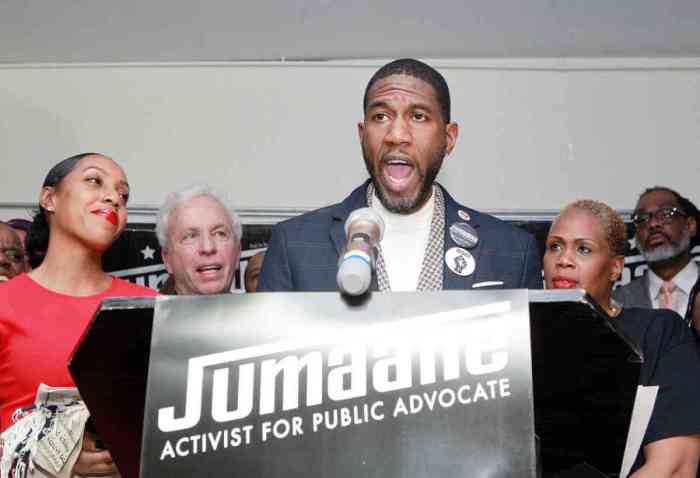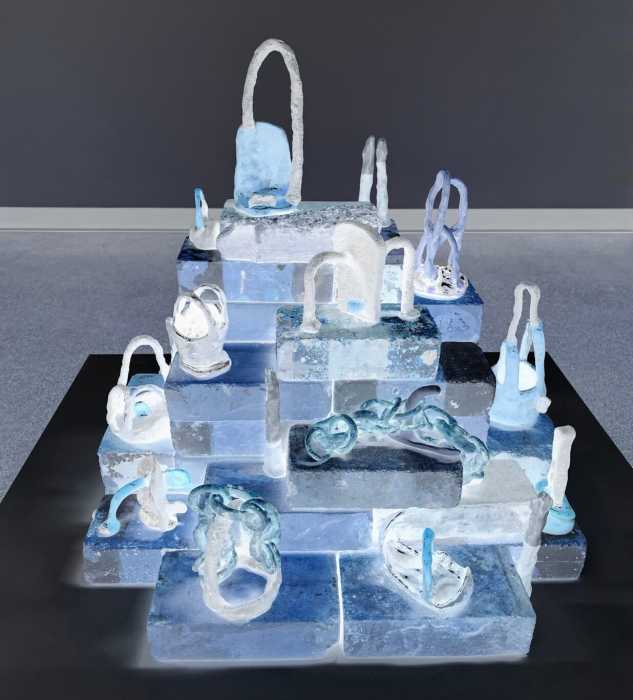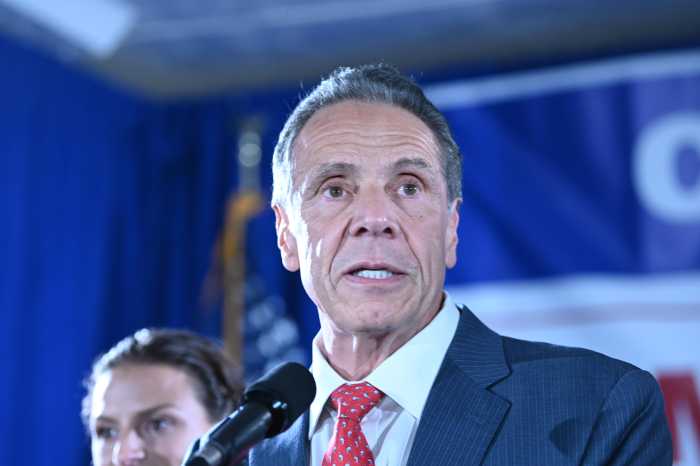Alliance Defending Freedom (ADF), a conservative religious litigation organization that files lawsuits challenging LGBTQ rights, lost the first round in its lawsuit challenging the application of New York’s law banning sexual orientation discrimination in public accommodations on December 13 when US District Judge Frank P. Geraci, Jr., granted the defendants’ motion to dismiss the lawsuit for failure to state a valid legal claim.
ADF filed suit in federal district court in Rochester on April 6, 2021, on behalf of Emilee Carpenter, a wedding photographer who does not want to provide her services for weddings of same-sex couples. Carpenter has been in business since 2012. She claims that several same-sex couples tried to contact her through her website, but she did not respond to their inquiries due to her religious and moral objections to same-sex marriages. She claims to have been deterred from publicly advertising her refusal to provide services for same-sex weddings because the New York State Human Rights Law expressly forbids businesses from advertising that they will deny their services to customers because of their sexual orientation. Carpenter’s lawsuit challenges three provisions of the Human Rights Law as well as the state’s Civil Rights Law, which also bans abridging the civil rights of people because of their sexual orientation.
Carpenter sued New York Attorney General Letitia James, Interim Commissioner of the State Division of Human Rights Jonathan J. Smith, and Chemung County District Attorney Weedon Wetmore, seeking injunctions to block them from prosecuting her. They all moved to dismiss the case, arguing that because Carpenter has not been charged with any violations of the law, she does not have standing to sue them in federal court. James and Smith alternatively moved to dismiss the complaint for failure to state a valid legal claim.
Judge Geraci devoted a substantial part of his opinion to explaining why he concluded that Carpenter had a right to bring this lawsuit in federal court, based on the State Division of Human Rights’ past track record of having enforced the law against a wedding venue that turned away a lesbian couple. Although Carpenter has not been prosecuted, her practice of denying wedding photography services to same-sex couples clearly violates the law, as does her intention to advertise that practice, so even if prosecution is not imminent, it is more than hypothetical. That was enough to give her standing to sue, wrote the judge, in light of precedents from the Supreme Court and the Second Circuit Court of Appeals.
However, Judge Geraci concluded, none of Carpenter’s constitutional claims were likely to be successful. She is raising First Amendment claims of freedom of expression, freedom of association, free exercise of religion (as well as invoking the Establishment Clause), and 14th Amendment Due Process, arguing that certain words in the Human Rights Law are inadequately specific to meet constitutional standards.
Perhaps the most significant part of the court’s analysis concerns the free speech and association claims. Carpenter objects that requiring her to provide her services, which include not only photography but also display of wedding pictures on her website, would compel her to express approval of same-sex marriages, a violation of her conscience and right to refrain from speech to which she objects. Geraci agreed that these objections raise First Amendment concerns that warrant strict scrutiny of the challenged law. However, he found that the state’s policy of ensuring that LGBTQ people have equal access to goods and services provided to the public by for-profit businesses qualified as compelling governmental interest.
Geraci invoked the US Supreme Court’s Masterpiece Cakeshop opinion in support of this conclusion. “In Masterpiece,” he wrote, “the Supreme Court unequivocally recognized that society had historically treated ‘gay persons and gay couples . . . as social outcasts’ who were ‘inferior in dignity and worth.’ In light of this history, the court found it ‘unexceptional’ that states were empowered to ‘protect gay persons, just as it can protect other classes of individuals, in acquiring whatever products and services they choose on the same terms and conditions as are offered to other members of the public.’ Indeed,” he continued, “it would be ‘inconsistent with the history and dynamics of civil rights law,’ which ‘ensure equal access to goods, services, and public accommodations,’ to exempt from those laws all public accommodations that object to same-sex marriage.”
ADF was relying heavily on the Supreme Court decisions that upheld the First Amendment right of the Boy Scouts of America to dismiss James Dale, an out gay assistant scoutmaster, as well as the First Amendment right of the Boston St. Patrick’s Day Parade organizers to bar from participation an organization of LGBT Irish people who sought to march under a banner identifying their organization. Judge Geraci pointed out that those cases were easily distinguishable, since they involved non-commercial groups that were formed as expressive associations to advance particular issues and values, whereas Carpenter runs a for-profit commercial enterprise. Neither of the Supreme Court decisions appeared appropriate to determining this case.
Although in Masterpiece Cakeshop that Supreme Court did overturn the ruling by the Colorado Civil Rights Commission against a baker who refused to design and produce a wedding cake for a gay couple, it was not due to disagreement with the Colorado court’s analysis of the constitutional issues, but rather because of perceived hostility by members of the Commission because of the baker’s religious beliefs. At least, this was the reasoning articulated by a majority of the court, although many commentators have found it unconvincing and saw it as an attempt by a majority of the justices to avoid confronting the claim that the court’s governing precedent denying religious exemptions from compliance with neutral laws of general applicability should be overruled — a goal which has been advocated in dissenting opinions by Justice Samuel Alito, Clarence Thomas, and Neil Gorsuch, and thought to command the sympathy of Justices Brett Kavanaugh and Amy Coney Barrett.
Judge Geraci rejected ADF’s argument that the New York Human Rights Law is not a neutral law of general applicability, so under the Supreme Court’s precedent, Carpenter is not entitled to claim a religious exemption from complying with it.
ADF’s long-term strategy in bringing this case and others like it is to try to get a majority of the Supreme Court to overrule the long-standing precedent — Employment Division v. Smith — so that any government policy burdening free exercise of religion will be subject to strict scrutiny. Their efforts, and those of other religious advocacy groups, have resulted in varying rulings by state and lower federal courts, but the Supreme Court has turned back petitions for review from several of these cases, most recently in Arlene’s Flowers v. State of Washington, which was finally settled last month when the proprietor of the business agreed to pay damages to a gay couple to whom she denied services for their wedding after the Supreme Court had refused to take up her most recent appeal.
ADF will undoubtedly seek to appeal this dismissal to the US Court of Appeals for the Second Circuit, based in New York City. Even if it should lose in round two before the court of Appeals, its ultimate goal is to get the question back before the Supreme Court, which has lately been adopting a constantly expanding view of the scope of free exercise of religion.
Judge Geraci, formerly a state court trial judge, was appointed to the federal district court by President Barack Obama in 2012.

